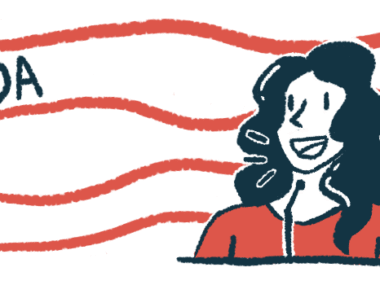Getting a Handle on Emotional Eating Caused by Stress and Anxiety
Written by |

Four weeks ago, I heard some unsettling news coming from my radio. And when I turned to my Twitter feed, I saw disturbing images parading across my computer screen. At the time, I didn’t know what to feel or how to process what was going on. However, I distinctly remember my first instinct: reaching over to my phone and ordering food.
I’ve always had emotional eating or stress eating tendencies for as long as I can remember. I knew I was an emotional eater before I knew the terms for the things I felt. Whether I’m feeling stressed, depressed, angry, or even if I just feel like I need to pull an all-nighter to get work done, my gut reaction is the same — get some food for comfort and company.
As a child, if I felt like I had a “meh” day at school, I would sometimes lounge around on the kitchen floor with the door to the snack cabinet open wide. In college, I often told myself that fast food was required for late nights in the study lounge. And even now, if I’m preparing for a long road trip, or if I’m writing or reading into the night, there’s something in the back of my mind telling me I ought to have snacks ready — even if my stomach is full.
I know that for some folks, emotional eating is manageable and healthy. For me, though, I know I can let it get out of hand. And I feel bad about it.
During some of my lowest moments, I can eat an entire large pizza by myself. And I wish I didn’t know this fact.
Oftentimes, if I find myself stress eating, I feel physically ill afterward. Sometimes I eat all the wrong things. Other times, I simply eat a bit too much. And too many times, I feel emotionally worse after eating — empty, just like the hundreds of calories I may have just consumed.
I know such habits can be particularly counterproductive as I try to live with Charcot-Marie-Tooth (CMT) disease. A poor diet, after all, can exacerbate many CMT symptoms such as immobility and fatigue.
For the past couple of years, I’ve felt pretty good with myself for keeping a fairly steady diet and remembering to only eat when I’m hungry. It was one aspect of my personal health management that I was somewhat proud of despite how turbulent 2020 was.
But as I was hearing about the violent events that were unfolding at the U.S. Capitol on Jan. 6, I thought, “Surely if there are moments that justify gorging myself on pizza, this has got to be one of them.”
The thought sat in my stomach and ran circles in my mind. I wasn’t hungry. And I knew pizza would ultimately just make me feel worse about everything.
So at that moment, I did the only other thing I could think of doing besides stuffing my face until I felt numb. I decided to step away from my Twitter feed, turn off the radio, and just take a nap.
When I woke up, I felt better about myself and a bit relieved. And while I was still uneasy about the cornucopia of bad news the radio seemed to offer, I felt good about my capability of tempering some of my most self-destructive tendencies.
This whole experience reinforced my belief that emotional eating is something I’ll probably struggle with for the rest of my life. It also dashed any doubts I might have had about the importance of mindfulness when managing CMT.
Like many other CMTers, I need to be mindful of the things we feel at the moment and be prepared for the things that stress us, the ways we naturally react to stress, and what we can do to push ourselves in a more healthy direction.
***
Note: Charcot-Marie-Tooth News is strictly a news and information website about the disease. It does not provide medical advice, diagnosis, or treatment. This content is not intended to be a substitute for professional medical advice, diagnosis, or treatment. Always seek the advice of your physician or other qualified health provider with any questions you may have regarding a medical condition. Never disregard professional medical advice or delay in seeking it because of something you have read on this website. The opinions expressed in this column are not those of Charcot-Marie-Tooth News or its parent company, Bionews Services, and are intended to spark discussion about issues pertaining to Charcot-Marie-Tooth.






Leave a comment
Fill in the required fields to post. Your email address will not be published.